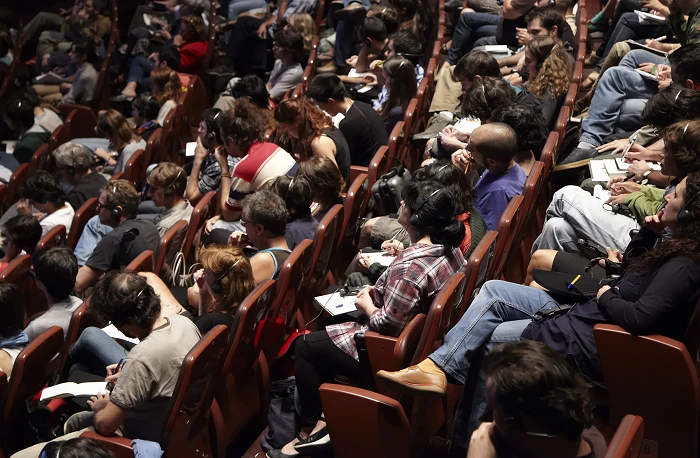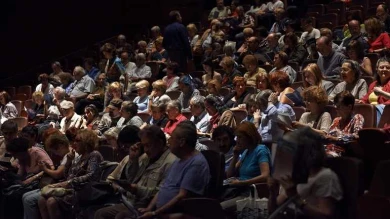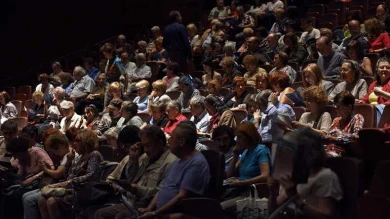Program
-
Group 1. Knowledge and research
Participants: Zdenka Badovinac, Agustín Pérez Rubio, Tadeu Chiarelli and Laurence Rassel
Moderator: Jesus Carrillo
Nowadays, the channels through which museums generate knowledge and disseminate information no longer rely exclusively on exhibitions. Archives and documentation centres have become of greater importance in today's society of knowledge. Also, museums often promote study and research processes that go beyond classical museology and have become spaces for debate and knowledge development that complement university education. -
Group 2. Patrimony, archive and memory
Participants: Charles Esche, Rodolfo Kronfle, Justo Pastor Mellado, Bartomeu Marí, Anne Gallagher, Lola Hinojosa, Nydia Gutiérrez, Soledad Novoa.
Moderator: João Fernandes
The notion of patrimony when associated exclusively with a national community, is no longer valid in a world where identities are in constant flux. Furthermore, memory can no longer be managed from a single perspective, or with a single voice; rather, it must respond to continuous interpolation arising from the conflicts and necessities of the present. Museums thus find themselves obliged to radically transform their definition of patrimony. This transformation can benefit from dynamics of exchange and collaboration, among other methods. -
Group 3. Funding and resource management
Participants: Vasif Kortun, Giancarlo Hannud, Leticia Sastre, María Inés Rodríguez, Miguel von Hafe and Bart de Baere
Moderator: Natalia Majluf
The conception and management of projects continues to respond to the local dimension, which hampers communication between institutions in different locations. In addition, the funding of culture is local while capital is global. This paradoxical situation calls for a new strategic vision, as well as work methods that facilitate more intense collaboration processes. -
Group 4. The educational and social dimension of museums
Participants: Osvaldo Sánchez, Enrique Varela, Carles Guerra, Pablo Martínez and Olga Ovejero
Moderator: Belén Sola
The need for opportunities for collective learning and experimentation, involving new modes of socialization and interaction with the world, has restored the pedagogical function of museums to a central position within contemporary society. The role of cultural institutions varies enormously in different contexts and regions and all educational efforts should be rooted in a specific time and space. However, at the same time, it is increasingly necessary for society to find tools that enable us to analyse and imagine a global reality.




![Tracey Rose, The Black Sun Black Star and Moon [La luna estrella negro y negro sol], 2014.](https://recursos.museoreinasofia.es/styles/small_landscape/public/Obra/AD07091_2.jpg.webp)


